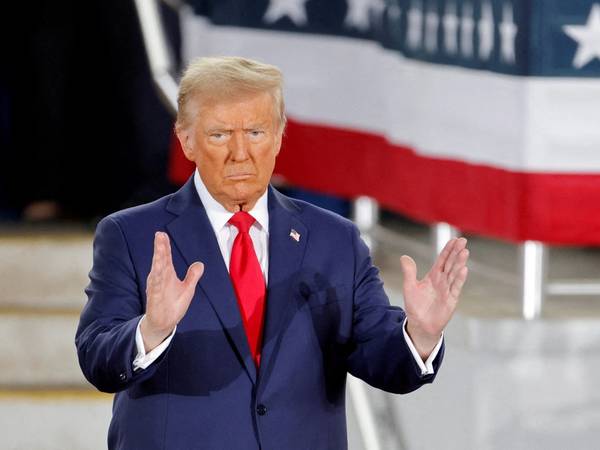Some Iranian analysts expect President-elect Donald Trump to pursue maximum pressure on Iran, while others see a chance for negotiations, though they admit talks with Trump would likely be difficult.
Foreign policy analyst Amir Ali Abolfath told the conservative Nameh News website in Tehran that Trump is almost certain to adopt a maximum pressure policy toward Iran. He noted that Trump would likely leverage the strength of the US economy and international bodies, such as the IAEA Board of Governors, to advance his hardline approach.
According to Nameh News, nearly all of the pessimistic assessments made by Iranian pundits are based on the combination of hardline political figures who have been named as the likely members of Trump's cabinet.
Abolfath stated that Trump believes his maximum pressure policy against Iran was not sustained under President Joe Biden and seeks to reinstate it. However, he questioned its potential effectiveness, remarking, "What Trump says is not important; we need to see what he can do."
Meanwhile, foreign policy analyst Qasem Mohebali told another Tehran website that the period of neither war nor peace for Iran’s Islamic government is over. Now it is time for either peace or war. Mohebali added, "Trump will most certainly offer to negotiate with Iran and will wait for Tehran's response. The situation is more complicated than eight years ago, and Iran needs to be careful not to turn the opportunity for negotiation into a threat."
Mohebali said, "Eight years ago, Trump's policy hinged on harnessing Iran's nuclear activity and its influence in the region. With his maximum pressure policy, he tried to prevent Iran's access to financial resources needed to facilitate the country's development. However, that policy led to an escalation of tensions in the region and in Iran-US relations. Nonetheless, he is likely to resume his previous policy." Mohebali did not mention that Iran also needed the financial resources to maintain its proxy groups in the region that target Israel and US interests.
He noted that for the first time in 30 years, Republicans now control all key pillars of decision-making in the United States, a dynamic that could influence Tehran's relations with Washington. Mohebali suggested that this alignment might benefit Iran if Trump secures an agreement favorable to Tehran, as no one within the US political structure would be positioned to oppose or block his decision. Over the past three decades, Congress often had the power to obstruct deals made by presidents and their administration.
Over the next two months, Iran must consider all possibilities and prepare to negotiate if President Trump presents terms for a deal. Referring to Khamenei's "neither war nor negotiations" policy following Trump's 2018 withdrawal from the nuclear agreement, Mohebali suggested, without directly naming Khamenei, that this era has ended. He argued that Iran now faces a critical choice between war and peace, with Trump having the freedom to pursue either path.
Mehdi Motaharnia, another Iranian foreign policy analyst, said he believes the Trump administration will enter negotiations with Iran with all of its power. But this is going to be a negotiation much more difficult than holding talks with the Obama or Biden administrations.
Motaharnia remarked that in his second term, "Trump aims to leave a lasting legacy both domestically and internationally. His team is made up of like-minded conservatives, and negotiating with Iran is a key objective of his foreign policy. However, he negotiates on his own terms, presenting both opportunities and threats during the process. These talks are unlikely to focus solely on the 2015 nuclear deal; instead, he seeks to broaden the scope to include other issues, aiming to extract as many concessions as possible."
However, Motaharnia cautioned that if Iran refuses to negotiate, the situation could become significantly more challenging. In such a scenario, the Trump administration may strengthen its ties with Tel Aviv, ensuring increased pressure on Tehran. This could leave Iran vulnerable to a range of difficulties.
The Iranian government appears to have its own conditions for potential negotiations. In an interview with the Mossallass website, Iranian government spokesperson Elias Hazrati stated, "Iran can negotiate with Trump if the United States refrains from interfering in Iran's internal affairs and does not target our interests. Since 1979, the United States has consistently sought to harm Iran with the intention of regime change."
This stance contrasts with Trump’s assertion that he does not pursue a policy of regime change in Iran.
